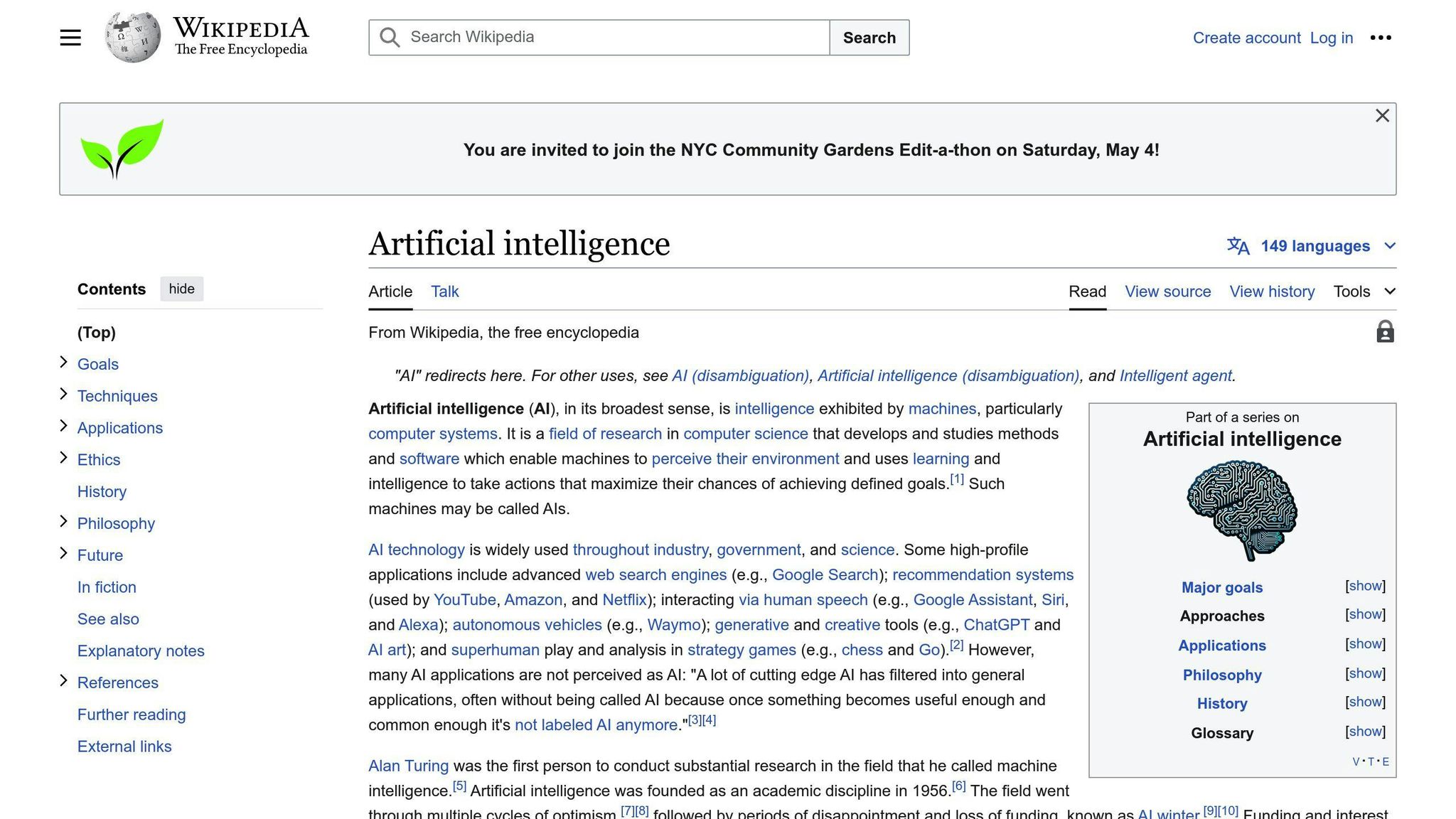
AI Customer Service: SMB Competitive Advantage
Small businesses can now offer 24/7 support and enterprise-level service without hiring more staff or stretching the budget.

Written by
Adam Stewart
Key Points
- Automate routine questions so your team can focus on complex customer issues
- Get detailed customer insights that were once only available to big companies
- Provide round-the-clock support without paying for overnight staff
- Start small with pilot programs to minimize risk and prove ROI first
AI-powered customer service offers a significant competitive advantage for small and medium-sized businesses (SMBs). By leveraging AI technologies like chatbots, virtual assistants, and predictive analytics, SMBs can:
- Automate routine tasks and provide 24/7 support, reducing wait times and improving customer satisfaction
- Ensure consistent experiences across all channels and personalize interactions using customer data
- Gain data-driven insights into customer preferences and pain points to optimize service
- Scale operations efficiently without major investments, handling increased volumes as the business grows
While implementing AI requires addressing data quality, bias risks, and maintaining human oversight, the benefits of enhanced efficiency, cost savings, and improved customer experiences make AI a powerful tool for SMBs to differentiate themselves and stay ahead of the competition.
Related video from YouTube
Common Challenges for SMBs

| Challenge | Impact |
|---|---|
| Limited staff and resources | Delays, reduced service quality |
| Lack of 24/7 support | Missed opportunities, lost sales |
| Inconsistent experiences | Frustrated customers, lack of trust |
| Lack of customer data insights | Unable to personalize service |
| Scaling operations | Bottlenecks, declining satisfaction |
Benefits of AI in Customer Service

- Automates tasks and offers 24/7 support
- Improves consistency and personalization
- Provides data-driven insights
- Enables efficient scaling of operations
By addressing these challenges with AI, SMBs can gain a competitive edge in customer service, driving business growth and customer loyalty.
Common Customer Service Challenges for SMBs
Small and medium-sized businesses (SMBs) face unique customer service challenges due to their limited resources and staff. These challenges can impact the quality of service provided to customers, affecting customer satisfaction and loyalty.
Limited Staff and Resources
SMBs often have small customer service teams, leading to delays and reduced service quality. With limited resources, handling a high volume of customer inquiries can be tough, resulting in longer response times and unresolved issues. This can lead to frustrated customers, negative reviews, and a damaged reputation.
Difficulty Offering 24/7 Support
Offering round-the-clock support is a big challenge for SMBs. With limited staff, it can be hard to provide support outside of regular business hours. This makes it difficult to cater to customers in different time zones or with varying schedules, resulting in missed opportunities, lost sales, and dissatisfied customers.
Inconsistent Customer Experiences
Resource constraints can lead to inconsistent customer service across different channels. SMBs may struggle to provide a smooth experience across phone, email, chat, and social media, resulting in frustrated customers and a lack of trust in the brand.
Lack of Customer Data Insights
SMBs often face challenges in collecting and using customer data for personalized service. Without advanced analytics tools, SMBs may struggle to understand customer behavior, preferences, and pain points, making it hard to tailor their service to meet customer needs.
Scaling Customer Service Operations
Scaling customer service operations effectively is a big challenge for SMBs. As the business grows, it can be hard to maintain service quality while handling more customer inquiries. This can lead to bottlenecks, inefficiencies, and a decline in customer satisfaction.
How AI Can Help SMBs with Customer Service
Small and medium-sized businesses (SMBs) face many customer service challenges due to limited resources and staff. AI technologies can help address these challenges, giving SMBs an edge in the market.
Automate Tasks and Offer 24/7 Support
AI-powered chatbots and virtual assistants can handle simple tasks and queries, freeing up human agents for more complex issues. This allows SMBs to offer 24/7 support, catering to customers in different time zones or with varying schedules. AI provides instant responses to customer inquiries, reducing wait times and improving satisfaction.
Improve Consistency and Personalization
AI ensures consistent information and experiences across all customer touchpoints, eliminating inconsistencies that frustrate customers. By using customer data, AI personalizes interactions and recommendations, enhancing the overall experience. This helps SMBs build strong customer relationships, increasing loyalty and retention.
Gain Data-Driven Insights
AI analyzes large volumes of customer data to identify trends, preferences, and pain points. These insights help SMBs make informed decisions, optimizing their customer service operations and improving satisfaction. With AI, SMBs can better understand their customers and tailor their services to meet their needs.
Enable Efficient Scaling
AI helps SMBs scale their customer service operations efficiently, without needing significant infrastructure investments or hiring more staff. By automating routine tasks and providing 24/7 support, AI enables SMBs to handle more customer inquiries, ensuring they maintain service quality as they grow.
sbb-itb-ef0082b
Potential Challenges of AI in Customer Service
When using AI in customer service, SMBs might face some issues. Knowing these challenges can help in dealing with them effectively.
Data Quality and Integration Issues
Good data is key for AI to work well. SMBs might struggle to merge AI with their current systems, causing data problems. Bad data can lead to poor AI performance, affecting customer service. To fix this, SMBs should keep their data accurate and consistent.
Risk of Biased Algorithms
AI can sometimes learn and repeat biases, leading to unfair treatment of customers. SMBs need to check their AI systems regularly to spot and fix any biases. Regular audits and tests can help keep AI fair and transparent.
Maintaining Human Oversight
AI should support human agents, not replace them. Human oversight ensures AI solutions are accurate and customer-friendly. SMBs should balance AI automation with human involvement, especially for complex issues.
Pros and Cons of AI in Customer Service
| Pros | Cons |
|---|---|
| 24/7 support | Needs high-quality data |
| Cost-effective scaling | Risk of biased algorithms |
| Better personalization | Requires human oversight |
| Data-driven insights | Integration challenges |
Implementing AI for Customer Service
When it comes to implementing AI in customer service, SMBs need to approach it strategically to reap the benefits. Here are some practical tips to help you get started.
Choosing the Right AI Solutions
Selecting the right AI solutions is crucial for SMBs. Consider factors such as cost, ease of implementation, and integration capabilities with your existing systems. Look for AI tools that are specifically designed for SMBs, offering scalability and flexibility. Evaluate the features and functionalities of each tool, ensuring they align with your customer service goals.
Phased Implementation Approach
Implementing AI in customer service can be overwhelming, especially for SMBs with limited resources. Adopt a phased approach, starting with low-risk, high-impact areas such as chatbots or automated ticketing systems. Gradually expand the use of AI in customer service, monitoring its effectiveness and making adjustments as needed.
Training and Support for Staff
Training your staff to work with AI tools is essential for a successful implementation. Provide ongoing support and training to ensure your team is comfortable using AI-powered solutions. This will help them to effectively handle customer inquiries and provide personalized support.
Examples of AI Tools for SMBs
There are many AI tools and platforms suitable for SMBs, including:
- Help Scout: Offers a human-centric approach to customer service, providing a unified platform for email, live chat, and help centers.
- Gorgias: Designed specifically for e-commerce, it handles customer inquiries through various channels, streamlining viewing order details and managing refunds or cancellations.
- Zendesk Advanced AI: Enhances customer service with a set of AI tools, including Intelligent Triage, Advanced Bots, and AI-powered intents for bots.
These AI tools can help SMBs automate tasks, improve consistency, and gain data-driven insights, ultimately providing a competitive advantage in customer service.
Conclusion
Key Takeaways
AI-powered customer service offers many benefits for small and medium-sized businesses (SMBs). By automating routine tasks, providing 24/7 support, and personalizing customer experiences, AI can help SMBs overcome common customer service challenges and gain a competitive edge. With AI, SMBs can improve efficiency, reduce costs, and enhance customer satisfaction, driving business growth.
To recap, the key takeaways from this article are:
- Automate Tasks: AI helps SMBs automate tasks, freeing up staff to focus on complex issues and high-value tasks.
- 24/7 Support: AI-powered chatbots provide 24/7 support, ensuring customers receive timely assistance and reducing the workload of human agents.
- Personalized Experiences: AI analyzes customer data to provide personalized experiences, improving customer satisfaction and loyalty.
- Efficient Scaling: AI helps SMBs scale customer service operations efficiently, handling increased volumes of customer inquiries without sacrificing quality.
- Competitive Edge: By leveraging AI in customer service, SMBs can gain a competitive advantage, differentiating themselves from larger enterprises and establishing a strong reputation in their industry.
FAQs
How does AI give competitive advantage?
AI-powered customer service helps SMBs by:
- 24/7 Support: AI chatbots can answer questions any time, helping customers whenever they need it.
- Personalized Experiences: AI uses customer data to offer tailored support, making customers feel valued.
- Data Insights: AI analyzes data to spot trends and predict what customers might need next.
- Efficiency: By handling simple tasks, AI frees up staff to focus on more complex issues, saving time and money.
These benefits help SMBs stay ahead of competitors and meet customer needs better.
Summarize with AI
Related Posts
How AI Reduces Costs for Small Businesses
Discover how AI-powered customer service can cut costs and improve efficiency for small businesses, ensuring a competitive edge and customer satisfaction.
AI Customer Service for SMBs: 10 Benefits
Discover the top 10 benefits of AI customer service for SMBs, including enhanced satisfaction, increased efficiency, and cost savings for a competitive edge.
10 Ways AI Customer Service Boosts SMB Conversion Rates
Discover how AI customer service can enhance SMB conversion rates with 24/7 support, personalized interaction, and operational efficiency.
AI vs Human Customer Service: Pros & Cons for SMBs
Explore the benefits and drawbacks of AI vs human customer service for SMBs, and learn how a hybrid model can deliver the best of both worlds for your business.
